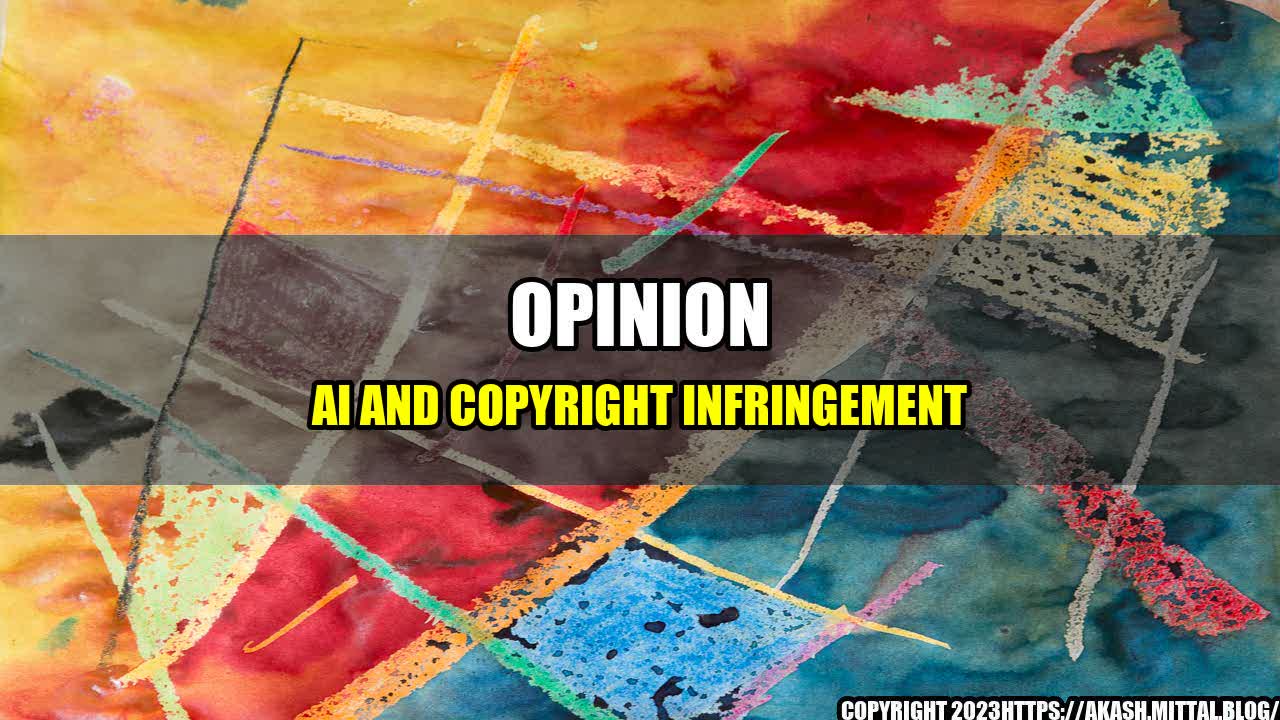It's no secret that Artificial Intelligence has become an integral part of the modern world in almost all its aspects. From the financial industry to healthcare, AI has revolutionized the way many things are done. One of the areas where AI has made significant strides is in natural language processing through chatbots and Opinion AI tools.
Opinion AI tools like ChatGPT are designed to analyze and interpret human language, particularly in the context of natural language dialogue. These tools can create customer service bots, assist learning, provide insights and recommendations, and perform many other tasks that require understanding human language. Unfortunately, there is a dark side to this innovation; they are built on mass copyright infringement.
A Story to Illustrate the Issue
Let me tell you a story about a small software company that develops AI-powered chatbots. The company is still in its early stages and lacks the necessary resources to produce original content for the chatbots, so they seek cheap alternatives. They soon find a plethora of content like books, blogs and articles to quickly and cheaply create dialogue lines for their chatbots. This content is copyrighted, but the company uses these materials anyway without permission and ingests them into their systems. With some tweaking, the chatbots can now handle voice inputs and output natural language dialogue that sounds human-like. Finally, the chatbots are marketed and sold by the company, bringing in significant revenue.
The Impact of This Kind of Infringement
The scenario above is just a fictional representation of the vast amount of copyright infringement that occurs in the AI industry, and the result of this is not just limited to financial gain. Infringement results in a negative impact on the creative industry from which these chatbots derive the stolen content.
A lot of people in the creative industry depend on copyright protection to make a living. They require royalties from their intellectual property rights to feed their family. When AI companies use copyrighted works without permission, they are reducing the value of these intellectual property rights. This, in turn, makes it harder for content creators to earn from these works. The loss of value to copyrighted works also undermines the author's and creator's efforts to maintain the quality of their works, turning them into a less valuable commodity.
Additionally, infringement does not only harm the authors and publishers, but it also affects the quality of the final product. When Opinion AI tools are built using copyrighted content without permission from the owners, they risk making errors in their output. This is because the quality of the output often has a direct correlation with the quality of the input. Hence if the content ingested into these systems is of low quality or contains errors, it will likely cascade into the final product. This may result in chatbots spouting inconsistencies, misinformation, or even offensive content.
Copyright Infringement by Opinion AI Companies
To drive home the fact further, let's look at some quantifiable examples of copyright infringement by Opinion AI companies:
- Google and Oracle lawsuit: In 2018, Google used thousands of lines of copyrighted code from Oracle in their Android OS. Google argued it was "fair use" but the US Supreme Court ruled that it was wrong, and Google had to pay Oracle $8.8 billion in damages for the infringement.
- OpenAI and GPT-2: In 2019, OpenAI developed the GPT-2 language model, which had the ability to generate human-like text using deep learning algorithms. OpenAI trained the model on an enormous amount of text it had scraped from the internet, without permission from the original authors. This led to concerns around copyright infringement by OpenAI.
- Hugging Face: Hugging Face is an AI research company that provides natural language processing solutions to businesses. Its claim to fame is the Transformer architecture it invented, which is used in most popular language models today. But the company has also faced allegations of copyright infringement, particularly regarding the text it uses in its chatbots.
The Way Forward
So, what can be done to remedy the situation? Here are three things that can be done:
- Respect Copyright: The AI industry needs to respect intellectual property rights and learn to pay for the content they integrate into their tools. This way, they will incentivize the content creators to create more high-quality content, and the industry will gradually improve.
- Encourage Research: AI companies can also encourage research on how to generate better content that can be legally used. The solution to copyright infringement is not ripping off other people's work; it is building better tools that can generate original content legally.
- Enforce Copyright Legislation: There is a need for enforcement of copyright laws and the punishment of companies that engage in infringement. This will act as a deterrent for other companies to refrain from this kind of behavior.
The Bottom Line
AI is a booming industry, and there is no doubt that it will continue to grow. However, growth should not be at the expense of other people's hard work and rights. It is time for AI companies to respect copyright, encourage research, and support the creative industry whose works they rely on. This will lead to a better industry for everyone involved.

Curated by Team Akash.Mittal.Blog
Share on Twitter Share on LinkedIn